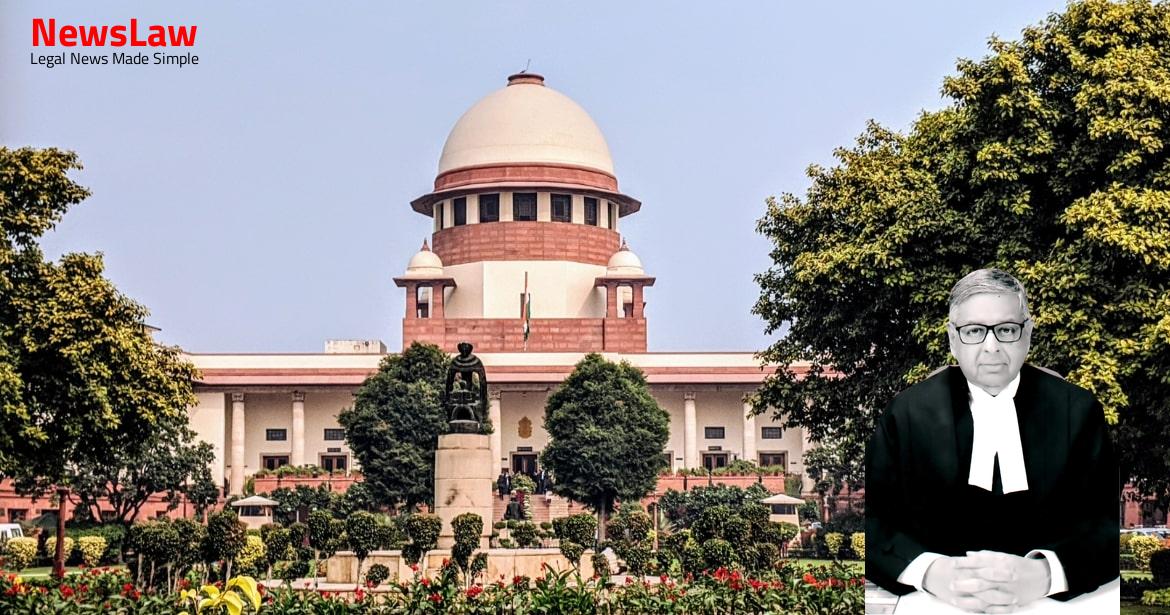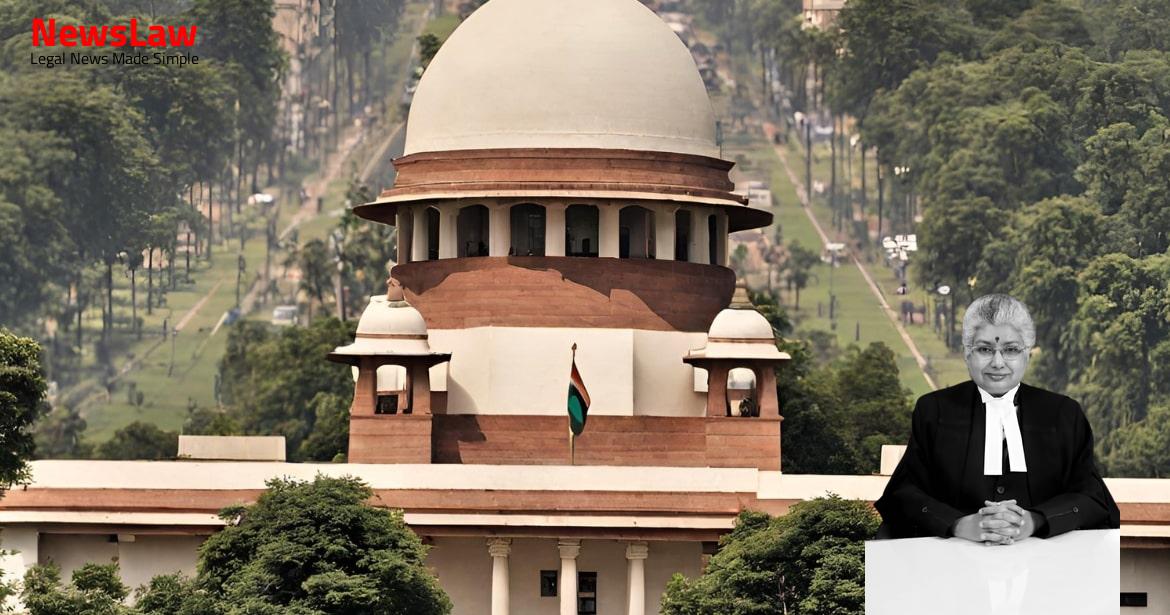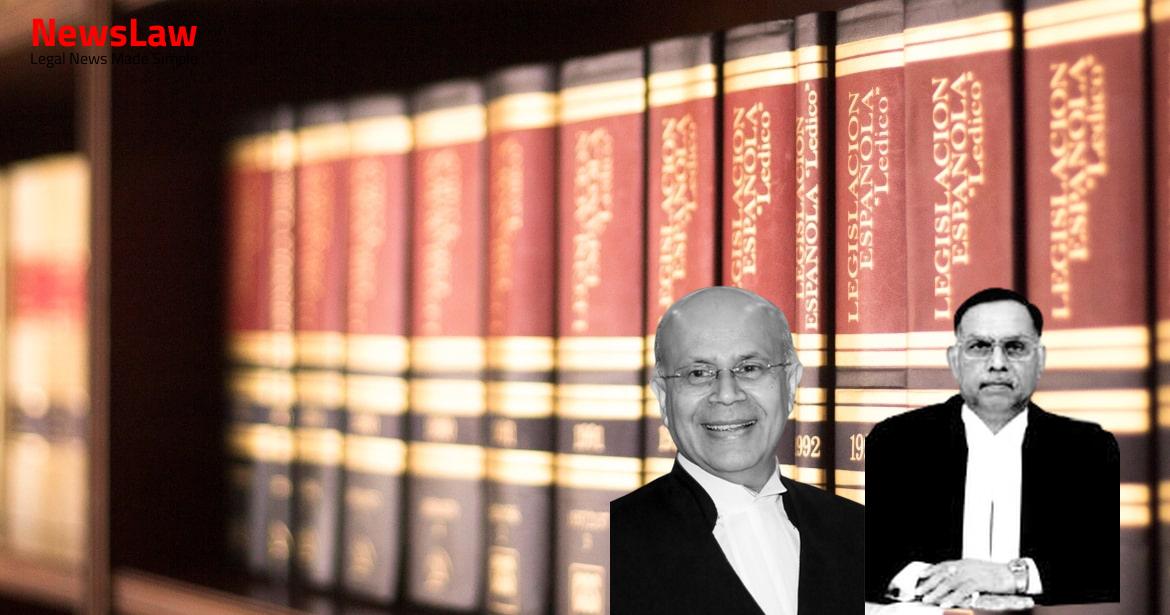The legal case delves into the intricate balance between judicial discretion and administrative authority in bail orders, particularly in the context of the ongoing pandemic. The High Court’s meticulous examination of the impact of its directives on constitutional and legal rights showcases the importance of maintaining a delicate equilibrium between individual liberties and public safety. Through a detailed analysis, the court navigates the complexities of granting bail, emphasizing the fundamental principles that underpin the criminal justice system.
Facts
- FAC: The orders were passed during the raging Covid-19 pandemic in the country.
- The order in the second bail application was set to last till 17 July, 2021.
- The second bail application was registered as S.B. 3 Criminal Miscellaneous Bail Application No 3125 of 2021.
- The applicant in the first bail application was Shahrukh, who was unrepresented on the day the order was passed.
- The bail plea of the applicant was rejected by the High Court on 20 May, 2020 in the first bail application.
- The second bail application for anticipatory bail was also rejected by the High Court on 2 August, 2021.
- Rajasthan High Court issued a notification at the onset of COVID-19 pandemic regarding bail applications
- Two orders passed by the High Court on 17 May 2021 and 31 March 2020 related to bail applications
- Interim stay on certain directions issued by the High Court was granted by the Supreme Court in May 2021 and April 2020
- Orders directed police authorities and High Court administration regarding listing of bail applications under Section 438 Cr.P.C.
- High Court orders were to be followed until withdrawal of complete lockdown by the Government of India
Also Read: Contractual Interpretation in Real Estate Dispute
Arguments
- Dr. Manish Singhvi, representing the State of Rajasthan, argued that congestion in correctional homes has been addressed in a previous order of the Court dated May 7, 2021.
- A strict implementation of directions regarding arrests from the case of Arnesh Kumar v. State of Bihar and Anr. has been mandated in the said order.
- The order in Suo Motu Writ Petition (C) No 1 of 2020 highlighted the concern of rapid spread of the virus among inmates of congested prisons.
- Mr. Vijay Hansaria, representing the High Court, raised grievances regarding lack of opportunity for the High Court administration to be heard in the impugned orders.
- He relied on various case laws and decisions to support the argument that Chief Justices of High Courts hold the authority to decide on listing matters and such administrative powers cannot be taken by any Bench.
- He emphasized on the need for High-Powered Committees to consider the release of prisoners following last year’s guidelines, and directed states that have not formed such committees to do so immediately.
Also Read: Non-compliance with requirements of Section 81(3) of the Representation of the People Act, 1951
Analysis
- Releasing an accused or convict during a lockdown is not justified
- Doing so would breach the lockdown order and put lives at risk
- The judgement discusses the importance of transparent administration in the fight against the pandemic.
- It references various cases to establish the role of the Hon’ble Chief Justice in allocating business to individual judges.
- Criticism is directed towards a learned Single Judge for issuing sweeping orders during complete lockdown, impacting bail applications and suspension of sentences.
- The order to restrain police from arresting accused persons charged with offenses punishable up to 3 years until a certain date is highlighted.
- Concerns about the encroachment upon the administrative power of the Chief Justice of the High Court by the impugned orders are raised.
- The impact on the right of personal liberty and the need for proper medical facilities for prisoners are emphasized.
- The directive to release inmates on parole for 90 days to address the pandemic is mentioned.
- The need for maintaining hygiene and sanitation in prisons, along with preventing the transmission of the virus, is highlighted.
- It is stated that the High-Powered Committees’ decisions should be published for effective dissemination of information.
- An accused person who enjoys freedom is in a much better position to look after his case and properly defend himself than if he were in custody.
- A presumably innocent person is entitled to freedom and every opportunity to look after his own case to establish his innocence.
- The granting of bail is essential for liberty, justice, public safety, and the burden on the public treasury, integral to a socially sensitized judicial process.
- The discretion of the court in granting or denying bail is regulated by the facts and circumstances of each particular case.
- The order of granting bail or denying it has the effect of temporarily overshadowing statutory provisions.
- The importance of bail provisions in criminal jurisprudence has been highlighted from historical events like Clause 39 of Magna Carta to modern cases such as Gurbaksh Singh Sibbia v. State of Punjab.
- The purpose of granting bail is to secure the attendance of the accused at trial, not as a form of punishment, and the discretion to grant bail should be exercised judiciously.
- The High Court observed that there cannot be a fixed rule in granting bail, and each case’s facts and circumstances should guide the judicial discretion in granting or canceling bail.
- Personal liberty of an accused or convict is fundamental and should only be restricted by ‘procedure established by law’ under Article 21, ensuring the accused’s appearance before the court.
- The object of detention or imprisonment is to secure the accused’s appearance and submission to the jurisdiction of the court, making the primary inquiry whether a recognizance or bond would achieve that purpose.
- The impact of the orders under appeal no longer exists
- Opinion expressed on the subject-controversy
- No necessity to formally set aside the orders under appeal as bail applications have been rejected
- Directions issued had potential for breaching constitutional and legal rights of individuals
- Directions also put fetters on power of investigating agencies
- Analysis done on correctness and propriety of the orders due to their general nature going beyond the specific proceedings
Also Read: Setting Minimum Qualifying Marks for Viva Voce: A Question of Legality
Decision
- Appeals allowed based on observations
- Directing the DGP to issue instructions in Rajasthan
- No arrest in cases with maximum sentence up to three years triable by First Class Magistrate
- Order in effect until 17 July, 2021
- Copies of the order to be sent to the Registrar General for necessary directions
Case Title: HIGH COURT OF JUDICATURE FOR RAJASTHAN Vs. THE STATE OF RAJASTHAN (2021 INSC 578)
Case Number: Crl.A. No.-001113-001113 / 2021



